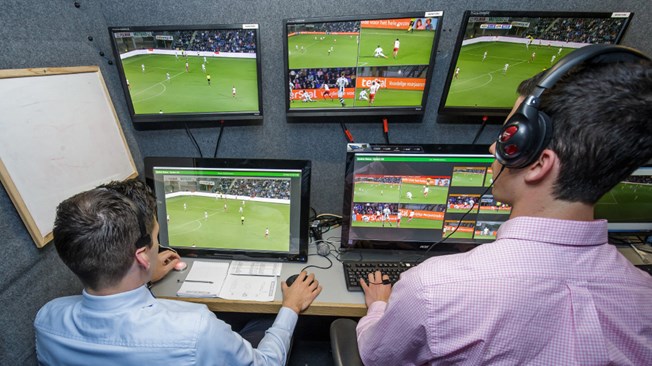With just months to go until the 2018 FIFA World Cup takes hold in Moscow, Russia, controversy is already in the air. Although the tournament only takes place every four years, political demonstrations and emotionally charged viewers give make the World Cup a global stage.
Every four years, every bar, pub, tavern and local watering hole will be decorated in pride and packed with comrades huddled around the television, participating in more than just a game.
Now let’s take a look at the latest a look at the latest international dispute, video assisted referees (VAR).
After months of deliberation, a public relations disaster and unanimous vote, VARs were given the green light to be used at the World Cup in Moscow this summer. The vote was taken by the International Football Association Board (IFAB) which is comprised of representatives from England, Scotland, Wales, Northern Ireland and the FIFA organization.
Curious it may be, the countries represented accounted for only one vote each while FIFA, representing all other countries, had four votes, only needing six to win the majority… this is FIFA we’re talking about.
Of course, the objective of VAR is meant to minimize human error, or point out blatant bias, of the referees (looking at you, Diego Maradona), but critical reservations are still held.
Skeptical of the accuracy of the video assisted referees, ex-referees and fans complain that the lagging delays of the technology led to confusion and simply wrong judgements. Case in point, earlier this week, the influence of VAR led to a goal being incorrectly disallowed during Tottenham’s controversial FA Cup game against Rochdale on Wednesday. This led to a win for the Tottenham Hotspur and the Premier League club as well as a place in the FA Cup quarter-finals for the first time since 1964.
In case inconsistent technology wasn’t alarming enough, the IFAB has said that they will be sending referees to Russia who have never worked with VARs before. Even when the staff is appropriately trained and equipped to utilize the technology, mistakes have been recorded in multiple trials leading up to the vote, including in Italy and Germany.
The technical director of IFAB, and former Premier League referee, David Elleray puts it simply, “Football has to decide does it want to use in a system which will bring in greater accuracy and fairness, albeit with some delay occasionally… Or do they want to stay where they are, where the fans are complaining that something is clearly wrong, everybody watching on television can see it was wrong, everybody in the stadium can see on their mobile phones that it was wrong, but the one person who needed to see the replay wasn’t allowed to look at the replay?”
Unsurprisingly, the FIFA president, Gianni Infantino, stands in defense of VARs, insisting that the benefits outweigh the drawbacks, even if players feel that “…Big Brother is watching you and you will not get away with it”. Whether FIFA is attempting to salvage any decency for rampant fraud and corruption, the VARs were well received by the other participating countries resulting in a unanimous vote.
Although, yes, this is a historic step for greater fairness in football, it wouldn’t be the World Cup without some disagreement. The only question left is, who, or what, do we yell at while we’re glued to our televisions?












